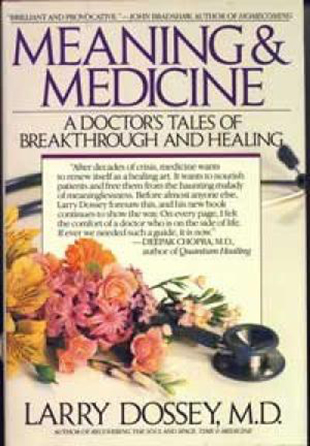"I have spent most of my life listening to people's stories. I've heard thousands of them — in examination rooms, hospital corridors, emergency departments, in parking lots, even on battlefields. I've heard them day and night — sometimes I confess, I am more asleep than awake. Some I've wanted to hear, some not — the 'cocktail party consultation,' the 'restaurant recital,' or the middle-of-the-night call from the 'worried well.' As a result of this listening, however, one fact about illness has come to impress me more than any other: The perceived meanings and emotions contained in these tales are utterly crucial to their outcomes.
"In the stories throughout this book I will use 'meaning' in two ways. Sometimes I will refer to the meaning of a patient's illness — the patient's interpretation of the event, the significance it holds for him or her, what he or she believes it may symbolize, represent, or stand for. In this sense, meaning is akin to the 'lesson' or the 'message' embedded in the illness that is extracted or gleaned by the person. The second way 'meaning' is used is in examining the impact of 'life meanings' on health and illness — the capacity of the perceived meanings and experiences of a lifetime to affect our bodies. I think it will be clear from the context of the case history which nuance of meaning is operating. But in both usages, meaning is inseparable from the actual thoughts, feelings, and emotions of the patients themselves. Because 'meaning' and 'emotion' occupy a continuum, in some cases we will drift from discussing meaning to examining the impact of an emotion such as shame, despair, guilt, hope, trust, or love."
